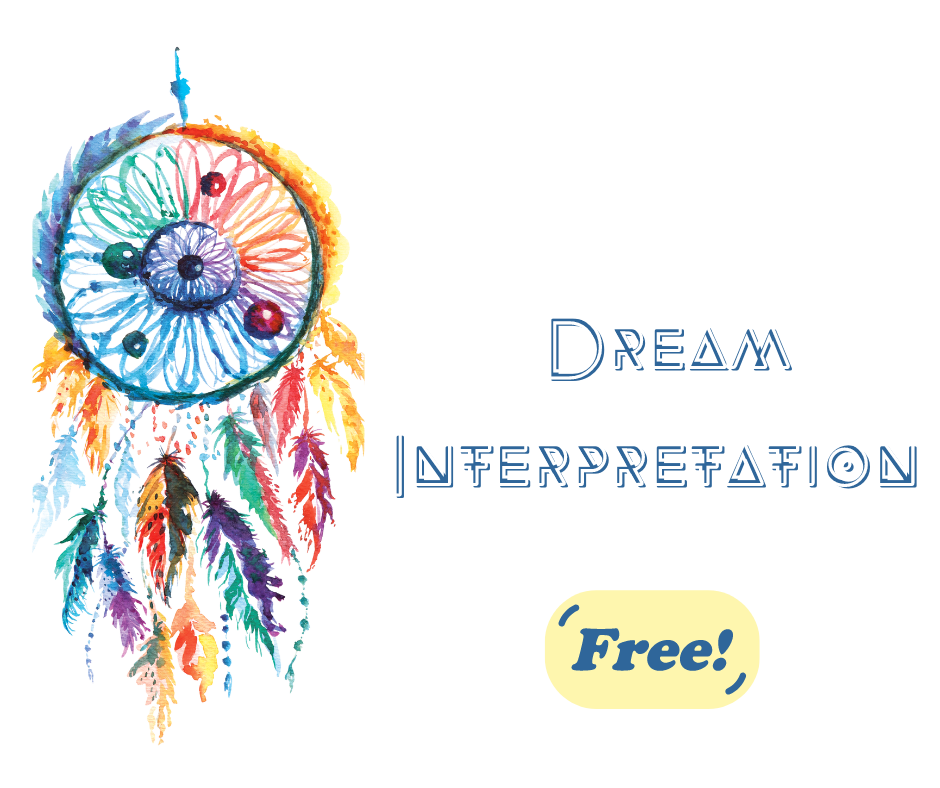Salvia divinorum (also known as Diviner’s Sage, Sage of the Diviners, Ska María Pastora, Yerba de la Pastora, and Sally D) contains a unique and very active hallucinogen and opioid-like substance, known as salvinorin A.
This plant produces atypical psychedelic and/or dissociative hallucinogenic effects when its leaves are chewed or smoked.
As a dissociative drug, the leaves of Salvia divinorum contain opioid-like compounds which produce a state of consciousness where one may experience hallucinations of other environments and locations, perceiving other “beings” besides those actually in the room, and forgetting oneself and one’s body in the experience.
What is Salvia divinorum?
Salvia divinorum is a species of sage, a member of the mint family. (Which is why it is also known as Magic Mint and Seer’s Sage).
The active ingredient of Salvia divinorum is salvinorin A.
Salvia divinorum also contains other terpenoids including other salvinorins and related compounds named divinatorins and salvinicins.
None of them are known to contribute to the plant’s psychoactivity.
Salvinorin A
Salvinorin A is a dissociative hallucinogen, which is found mainly in Salvia divinorum, but in lesser quantities also in other Salvia species, such as Salvia recognita and Salvia glutinosa.
Dried Salvia divinorum leaf contains about 0.18% salvinorin A.
Salvinorin A is one of the most potent naturally occurring psychoactive substances by mass, effective orally at 200-500 micrograms (0.2-0.5 mg).
Half-life: around 8 minutes.
While most other naturally occurring hallucinogens (e.g., DMT, psilocin, ibogaine, and mescaline) are alkaloids, salvinorin A is a terpenoid (diterpene).
Also, while most psychedelics target serotonin (the 5-HT2A receptor) and most dissociative hallucinogens such as ketamine target glutamate (as NMDA receptor antagonists), salvinorin A is a potent κ-opioid or kappa opioid receptor (KOR) agonist. Menthol, by the way, is another KOR agonist, but while menthol is a weak KOR agonist, salvinorin A is a strong one.
(Unlike traditional opioid agonists, salvinorin A targets the κ-opioid receptor rather than the μ-opioid receptor.)
KOR is most abundant in areas of the brain, which play a crucial role in consciousness. By activating these receptors, salvinorin A is able to disrupt consciousness, producing profound consciousness-altering/dissociative hallucinogen effects.
Other activities of salvinorin A:
- a potent agonist at D2 (dopamine) receptors, which may be partially responsible for its hallucinogenic effects (as well as possibly its dysphoric effects)
- has an effect on cannabinoid CB1 receptors
- increases prolactin
- inconsistently increases cortisol
- increases the activity of DAT (dopamine transporter)
- decreases the activity of SERT (serotonin transporter)
Like most other agonists of kappa opioid receptors, salvinorin A produces sedation, psychotomimesis, dysphoria, anhedonia, and depression.
Traditional Use
Native to the Sierra Mazateca region of Oaxaca, Mexico, fresh Salvia divinorum leaves have a long history of use by Mazatec shamans religiously as an entheogen to facilitate visionary states of consciousness in spiritual practices and healing ceremonies.
It was used to induce a visionary trance state that made it possible for shamans healers to determine the underlying cause of disease and how to cure it or even to locate missing/stolen objects.
Salvia divinorum is regarded by some as an incarnation of the Virgin Mary, therefore rituals sometimes begin with an invocation to Mary, Saint Peter, the Holy Trinity, and other saints.
Rituals are performed in a quiet place.
The leaves are crushed to extract their juices, which are then mixed with water.
Alternatively, the fresh leaves are sometimes chewed and swallowed.
Medicinal Uses
Traditionally, the herb was used as a diuretic and for conditions such as:
- diarrhea
- anemia
- headaches
- rheumatism
Indeed, salvinorin A was discovered to be capable of inhibiting excess intestinal motility (e.g. diarrhea) due to inflammation.
Other research suggests it may have potential as an analgesic and antispasmodic and as a therapeutic tool for drug addictions.
While Salvia divinorum and salvinorin A don’t have any approved medical uses in the United States, KOR receptors may provide a natural addiction control mechanism and dysregulation of this receptor system has been implicated in alcohol and drug addiction. Therefore, drugs that target this receptor may have therapeutic potential in the treatment of addiction.
Another KOR agonist with comparable effects is ibogaine, which has possible medical applications in addiction treatment.
KOR agonists may also be beneficial in bipolar disorder.
There is a case report suggesting that Salvia divinorum may have anti-depressant properties.
It is also studied as a potential treatment for dementia and Alzheimer’s disease.
Salvia divinorum Effects / High
Salvia divinorum induces quite a different subjective experience compared to other hallucinogens and has been described as an atypical psychedelic or a dissociative hallucinogen.
Psychoactive effects include:
- out-of-body experiences
- visual and auditory hallucinations, including powerful closed- and open-eye visuals
- psychedelic sensations including perceptions of bright lights, vivid colors, and shapes
- body/object distortions (e.g., merging with or becoming objects)
- uncontrolled laughter
- talkativeness
- visions
- synesthesia
- sensations of motion, such as a sense of flying or floating
- radical perspective shifts
- Salvia gravity – a physical sensation of pressure on the body (pulling or pushing of the body in a particular direction)
- increase in sensual and aesthetic appreciation
- a creative dream-like experience
- insight into personal issues
- perceptual and emotional changes
- entering or perceiving other dimensions/alternate realities
- contact with entities
- dissociation/detachment
- distortion of time and space, such as the feeling of being in several locations at once
A sense of peaceful appreciation for life may sometimes be experienced for days or weeks following the use of Salvia divinorum.
Adverse Effects
- dysphoria including fear, even panic
- loss of physical coordination
- dizziness
- slurred speech
- chills
- nausea
- decreased heart rate
- mood swings
- sweating
- difficulty concentrating
- confusion
- tiredness
- temporarily impairs memory
- psychosis
Salvia divinorum Experiences / Trips
Here’s one of my own experiences with Salvia divinorum:
I once smoked Salvia divinorum in my room. I experienced a dissociative state in which I felt as if I was moving through the wall, but in reality I was walking out the door and into the next room, my brother’s room. There, I regained gradually my grasp on reality, experienced an emotional state, and started working through some personal issues between my brother and I.
Many other experiences with Salvia divinorum are described on Erowid.org.
For example, one person reported:
I tripped so hard I astral projected (Yeah, really) and had visions and conversations with various spirits, including a female entity composed of metal plates and vines I am now convinced was the salvia goddess.
How to Take Diviner’s Sage to Induce an Altered State of Consciousness?
Salvia divinorum is usually purchased as fresh or dried leaves or in liquid extract form.
The most common method of ingestion is smoking dried leaves in a joint or using a bong/pipe.
Oral Ingestion
Salvia can also be ingested orally (e.g., by chewing the fresh leaves), but remember that while salvinorin A can be absorbed by the oral mucosa, it is deactivated by the gastrointestinal system.
If chewing a large number of fresh leaves doesn’t appeal to you, you can extract the juice of fresh leaves, mix them with some water, and drink (or at least gargle it for as long as possible before spitting it out).
There are also tinctures (salvinorin A is soluble in ethanol, but not so much in water), which should be used sublingually because salvinorin A is deactivated by the gastrointestinal system when it is orally ingested.
Oral dose for water extract: leaf juices from about 20-80+ fresh leaves (about 50–200 g / 2–7 oz).
Oral dose for chewing: 8-28 fresh leaves (containing some 50-172 mg salvinorin A).
The onset of effects: 5 to 20 minutes.
Duration of effects: 30-90 minutes.
After effects may continue for 2 hours.
Smoking Salvia divinorum
Alternatively, you can smoke the dried leaves in a pipe or water pipe, preferably with a torch lighter.
Smoking may be much more effective since doses for chewing vastly exceed the smoking dose.
As little as 0.2 grams (200 mg) of Salvia divinorum dried leaf contains 0.36 mg (360 micrograms) of salvinorin A and can be expected to exert a psychoactive hallucinogenic effect.
However, the potency of different samples may vary greatly. And the effective dosage will therefore also vary, not just depending on the potency of the leaf, but also on the sensitivity of the individual.
There are also concentrated preparations (solid extract) available that may be smoked. For example, an x5 Salvia divinorum extract will contain 5 times more salvinorin A than a similar dose of regular dried leaf. But some of these crude extracts may be of poor quality or not burn well.
Ideally, get a standardized salvinorin A enhanced leaf preparation rather than a crude extract one. These should be potent and dry enough to burn well.
Vaping wouldn’t work since the melting temperature of salvinorin A is about 240 °C, which means the boiling point is higher than the temperature most vaporizers reach (277 °C).
The onset of effects: almost immediately.
Duration of effects: 1-5 minutes. (Peak at about 2 minutes.)
After effects may continue for 5-60 minutes, but normally after 20 minutes you should be back to baseline.
Smoking MAO-inhibiting herbs such as Passionflower (or even extracted harmala alkaloids) along with Salvia divinorum may make the experience longer and stronger.
Cannabis may also potentiate Salvia divinorum.
Incense
You can also burn Salvia divinorum as psychoactive incense.
Is Salvia divinorum Legal?
Salvia is not regulated by the federal government or listed under the Controlled Substances Act (CSA). However, some US states do control the drug.
In the US, Delaware, Florida, Illinois, Kansas, North Dakota, Oklahoma, Virginia, Ohio, and Nebraska have placed Salvia into schedule I of state law, while California, Louisiana, Maine, North Carolina, and Tennessee enacted legislation restricting the distribution of the plant. (Source.)
Salvia divinorum may be illegal or controlled in some countries, including but not limited to Armenia, Australia, Belgium, Brazil, Canada, Croatia, Czech Republic, Denmark, Estonia, Finland, Germany, Hong Kong, Iceland, Ireland, Italy, Japan, South Korea, Latvia, Lithuania, New Zealand, Norway, Philippines, Poland, Portugal, Romania, Russia, Serbia, Singapore, Spain, Sweden, Switzerland, United Kingdom, Ukraine, and Vietnam.
Salvia divinorum for Sale & Warnings
Salvia divinorum appears to not be toxic in normal dosages; it does not cause any harm and does not appear to be addictive.
However, it should not be used by people suffering from mental diseases or by pregnant/breastfeeding women.
I recommend not using Salvia divinorum for people under 30 years of age.
Do not drive or operate heavy machinery under the influence of Salvia divinorum.
It is not recommended to take Salvia divinorum without a trip sitter to watch over you. (Check if, and where, I’m available to serve as a trip sitter.)
While Salvia divinorum is not currently illegal in the US, it is not always easy to come across (especially in the dried leaf, non-extract form).



Thanks for your message. Feel free to contact me privately for assistance.
Hiya please let me know where I can buy Salvia Divinorum? Extract if possible as I have not had any for years…